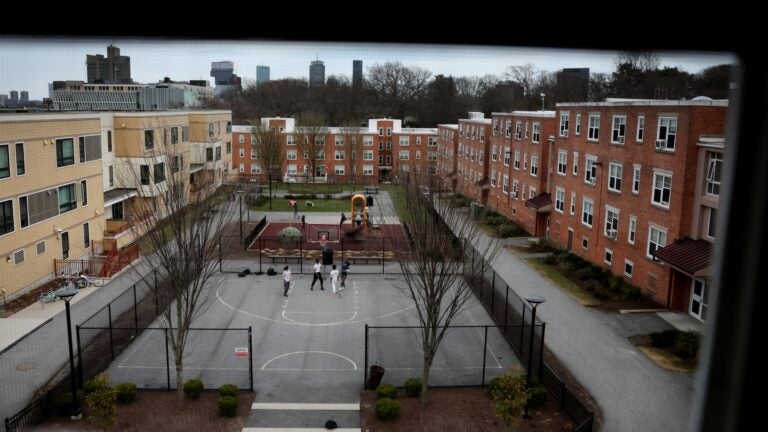Local News
The state’s housing office says it can no longer afford additional services afforded to Massachusetts residents.

To protect Section 8 housing vouchers amid rising rent costs and insufficient federal funding, the Executive Office of Housing and Livable Communities is cutting additional benefits for some households, including utility and security deposit allowances.
The changes will raise costs for those whose budgets are already stretched thin.
“No one is happy that we have to make these changes, but they were done with great care and great consideration to ensure that no matter what funding changes do come down the line, we can ensure that those who have vouchers today will continue to have vouchers,” said Sarah Scott, the director of leased housing for Metro Housing Boston.
Metro Housing Boston is subcontracted by the EHOLC to administer the rental assistance voucher program in the Boston region.
Scott said the organization worked with the state throughout this process to “best determine what changes can be made to preserve as many vouchers as possible.”
The changes will occur at the next regular or interim rent certification for those housing voucher holders.
Federal government assistance with Section 8 Housing
The U.S. Department of Housing and Urban Development (HUD) allocates Section 8 Housing vouchers to the state. Regional Administering Agencies, like Metro Housing Boston, hand out the vouchers.
HUD allots over 23,000 federal vouchers to the state, which provide rental subsidies for eligible low-income tenants living in market-rate apartments.
According to a 2022 report, “A Right to Rental Assistance in Massachusetts,” approximately 585,000 households in the state meet the criteria for state rental assistance. Around 250,000 of those are being helped by a mix of state and federal subsidy programs, leaving a gap of 335,000 unserved households.
Rachel Heller, the CEO of Citizens’ Housing and Planning Association (CHAPA), said Section 8 housing vouchers are “an important part of creating and preserving deeply affordable homes and bringing rents to levels that people with low incomes can afford in the private market.”
With the cuts coming out of Washington D.C., Heller said she is “very concerned.”
With current federal funding, Heller said, about 32,000 vouchers across the country are expected to be lost to attrition. Vouchers are not being taken away from people who have them, but they won’t be reissued once they are turned in.
“Rental assistance is the tool that we have that makes it possible for rent to get to levels that people with low incomes can afford,” said Heller. “When changes are happening to the program that impacts the people who are using these vouchers – that makes it really hard. It puts an even greater strain on households. You’re stretching a tight budget even further.”
Massachusetts housing program
EOHLC participates in the federal Moving to Work (MTW) program, which allows for locally controlled, innovative strategies to support low-income residents. As an MTW agency, the state was able to provide flexible and tenant-friendly benefits beyond what other housing authorities can offer.
Some added benefits include paying utility allowances for cooking and hot water, paying for a household’s security deposit upon moving or, when a new lease is up, deducting the first $5,000 of earned income in rent calculation.
Not all voucher holders could take advantage of these added benefits, with some being limited to pilot programs.
EOHLC states that due to rising rents, limited expectations for increased federal funding, and the need to maintain all existing federal vouchers, the agency can no longer offer additional benefits for federal vouchers as a cost-saving measure.
The EOHLC says the program changes will align federal vouchers with the subsidies and support provided by many public housing authorities. The program changes only affect households that took advantage of these added benefits.
“These program changes are being made to preserve existing rental vouchers and to keep Massachusetts residents in their homes,” the agency said.
Vouchers helping working families
Scott said about 60% of Metro Housing Boston Section 8 voucher holders are elderly and disabled, often on a fixed income. The other 40% are working.
“There’s a big misconception that there is a large demographic of those with no income on our program,” said Scott. “That is categorically not true. Those who are able to work on our program are working. The problem is that the cost of living is so great that 30% of their adjusted monthly income is still not enough to cover their housing costs.”
Scott said the need for Section 8 housing is growing exponentially. Metro Housing Boston has a wait list of over 30,000 people, with the wait time in the Boston region being 13 years.
If the funding were to dry up for the program, Scott said it would be “devasting.”
Eviction rates would explode, and property owners would be hurt when they could no longer afford to cover this portion of the rent.
“It would be catastrophic across the state,” Scott said.
Heller said the state needs help from the federal government.
“Everything is very expensive,” said Heller. “The cost of developing housing, the cost of preserving housing, rent, home prices – we need all hands on deck right now.”
Sign up for the Today newsletter
Get everything you need to know to start your day, delivered right to your inbox every morning.


